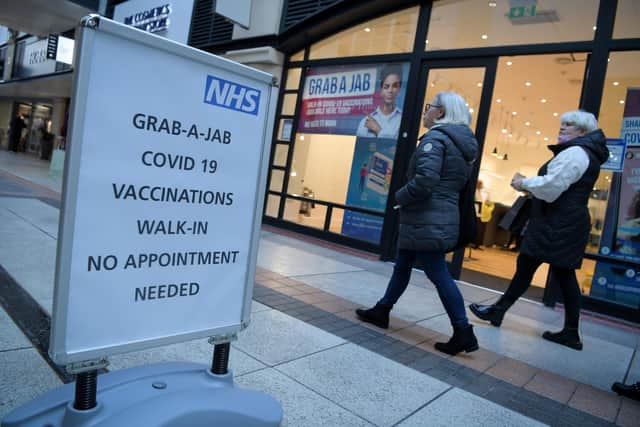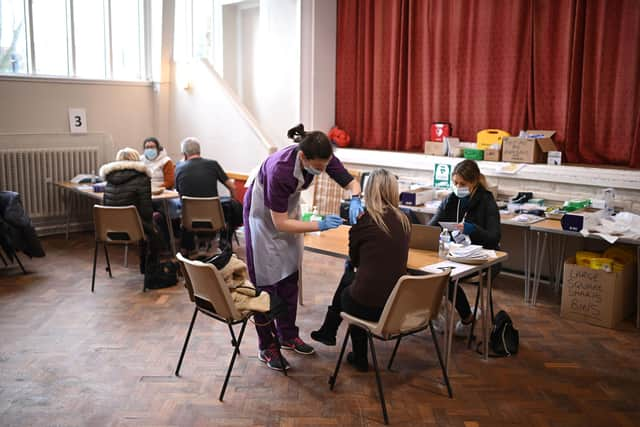Lower trust in Government and worse health experiences used to explain ethnic gap in vaccine uptake
and live on Freeview channel 276
The new findings from the study suggest lower levels of trust in the Government and worse healthcare experiences help to explain why there is an ethnicity gap in Covid-19 vaccination uptake in the UK.
The results, however, only account for a quarter of the gap with researchers urgently calling for further research to explain the remainder of the ethnicity gap.


Advertisement
Hide AdAdvertisement
Hide AdIt is believed practical barriers to accessing vaccination services, types of information sources being consulted, conspiracy theories around Covid-19, and attitudes to vaccinations in general may all potentially explain the gap.
As of November 2021, white people aged 50 and over were 23 per cent more likely to be vaccinated than black people, and 8 per cent more than South Asian people.
This recent study finds that people from ethnic minority groups have reported lower patient satisfaction and worse healthcare experiences in general, which reflects not only the disparity in Covid vaccination uptake, but ethnic disparities in healthcare overall.
The study was based on statistical analytics of survey data from 4,885 UK adults.


Advertisement
Hide AdAdvertisement
Hide AdSiobhan McAndrew, Senior Lecturer in Politics, Philosophy, and Economics at the Sheffield Methods Institute at the University of Sheffield, said: “This study is important not only because of what it tells us about health inequalities and the importance of trust, but also because our findings focus attention on what healthcare and other public institutions do in order to generate trust or distrust, especially with regard to minority groups”.

